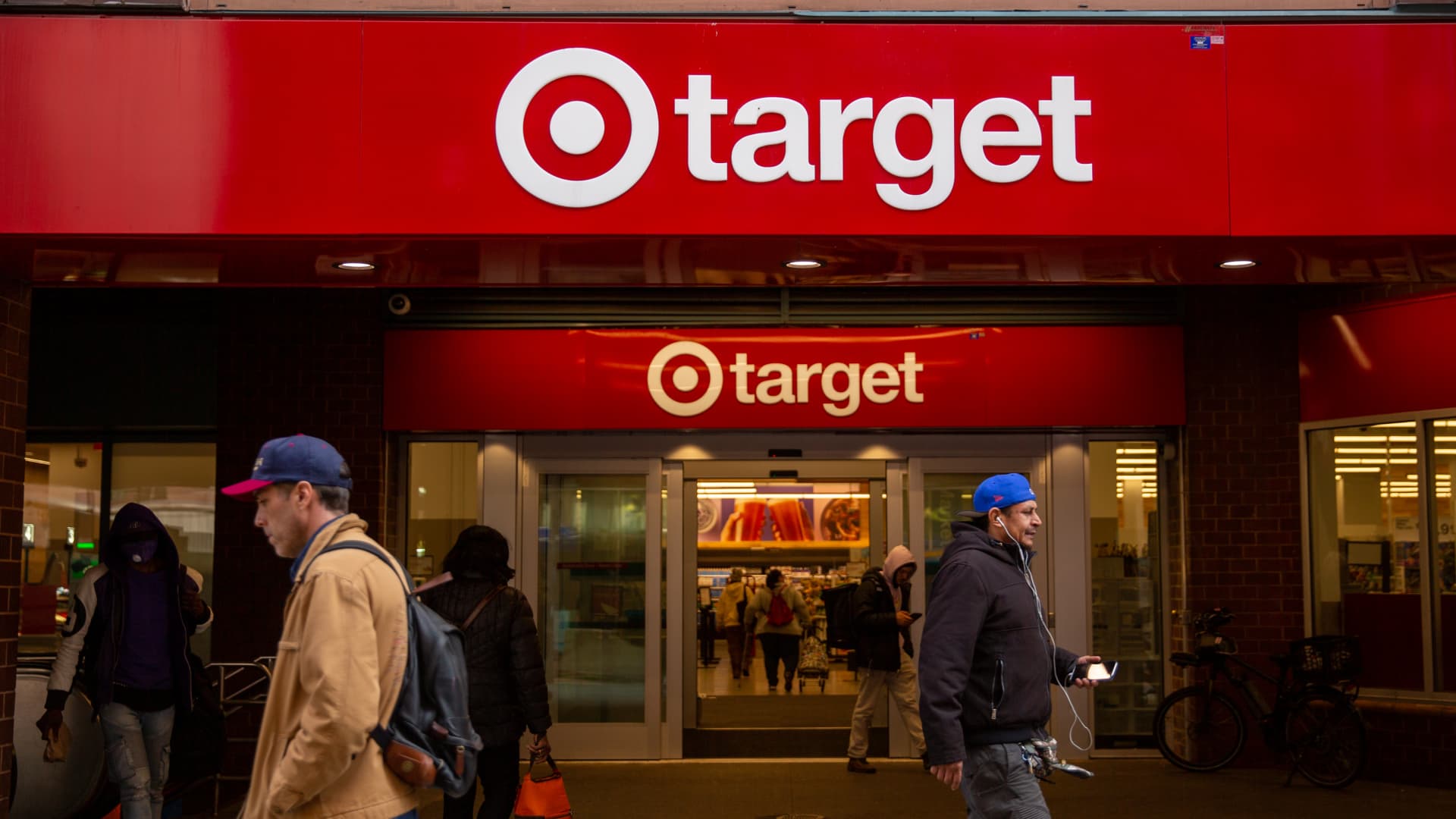A scene from “Barbie.”
Courtesy: Warner Bros.
If there is one thing Mattel CEO Ynon Kreiz wants shareholders to take control of Barbie on Thursday.
As the toymaker faces activist pressure from Barington Capital, particularly around its strategy with the Fisher-Price and American Girl brands, it is holding up Barbie as a model of what's possible at the toy company, with a presentation for investors on Thursday.
“Our job is to take these timeless brands and make them timely,” Kreiz told CNBC before the presentation.
Since taking the helm of Mattel in 2018, Kreiz has initiated a turnaround plan for the company that has seen the resurgence of major brands, including Barbie, and a 44% rise in the stock price. He has touted Mattel's “playbook,” the company's strategy for taking beloved franchises and making them available to consumers in multiple segments.
With “Barbie,” the film of the same name, directed by Greta Gerwig and nominated for eight Oscars this year, that plan became a reality.
“The idea was to find ways to create multiple touchpoints to build strong toy brands,” Kreiz said. “And once you have the established fan base and the cultural resonance around the brands, this is where you extend it to other experiences, other products and other opportunities to connect with your fans.”
“The 'Barbie' movie was really a manifestation of that, a display of how we think about the opportunity that's in front of us,” he said.
Gerwig's “Barbie” generated nearly $1.5 billion at the global box office by tapping into pop culture relevance — both the reverence and revulsion for the toy brand that consumers have felt for more than six decades. The film's success generated about $150 million in sales of toys and related consumer products, such as sweatshirts emblazoned with the phrase “I am Kenough” and Mattel's share of movie ticket profits.
“We now think of the people who buy our products not only as consumers but also as fans,” Kreiz said.
Starting in July, the film will tour 37 cities and different music venues, accompanied by the Sinfonietta, an all-female orchestra. And then there are this Sunday's Academy Awards, where “Barbie” is nominated for acting, best original song, best costume design and best picture, among others.
“Whether we're talking about products, entertainment, television, music, publishing, digital games, all of this we're creating a true franchise ecosystem,” said Josh Silverman, Mattel's chief franchise officer.
Following in Barbie's footsteps
While Kreiz has acknowledged that future film and television projects might not reach the same heights as the Margot Robbie-directed film, he noted that “Barbie” offers a model for expanding Mattel's intellectual property outside of the toy aisle.
“It's not about whether our brands resonate outside of stores,” he said. “Because they do. We've proven it. It's about can we do it because we're doing it and we've been executing it very successfully. It's about doing it at scale.”
This is especially important for the company's Fisher-Price and American Girl brands, which have been in the midst of their own transformations for several years.
A combination of changes in consumer purchasing habits and the demise of Toys R Us caused significant declines in sales for both brands in recent years. Last year alone, American Girl's global net sales fell 9%. For the company's infant, toddler and preschool segment, which includes Fisher-Price, sales fell 10%.
Activist investor Barington Capital wrote a letter to Kreiz ahead of the company's earnings report in February that said it believes “these brands are now detracting from success in other segments of Mattel and harming shareholder value.”
Mattel, however, still sees value in continued investment in these brands and had already begun efforts to revitalize American Girl and Fisher-Price before the activist investor's February letter, Kreiz said.
American Girl was experiencing sales weakness even before the pandemic forced retail stores to close. Copycat dolls that resembled the iconic American Girl dolls filled shelves for a fraction of the price, and the once-attractive experiential shopping associated with brand flagship stores had dissipated.
While American Girl dolls can be purchased online, e-commerce had not historically been Mattel's main strategy. Much of their marketing went into promoting retail stores with their cafes, doll hair salons, and mail-order catalogue.
The American Girl brand emerged from the pandemic slimmer, with fewer retail locations, a bigger push for direct-to-consumer online shopping and a renewed focus on modernizing its dolls for a new generation. Sales in 2021 even increased by 5%. However, they fell again in both 2022 and 2023.
When it comes to the American Girl brand, Kreiz admits that the challenges “weren't product-driven,” but rather an issue with their business strategy.
He said the brand will see growth in its flagship stores, more product innovation and greater licensed entertainment in the future, including a partnership with the Disney princesses and a film project with Supreme.
Mattel American Girl doll.
Source: Mattel
“We believe there are real opportunities to continue to grow the brand and carefully expand the story that exists within American Girl, and we want to do it in an authentic way,” Silverman said. “The franchise is very much the bridge between toys and entertainment.”
Mattel executives have remained tight-lipped about what to expect from an upcoming American Girl movie, which currently has no release date.
“We're working closely right now with a writer to unlock that story,” said Lisa McKnight, Mattel's chief brand officer. “We think it will be a great opportunity for the brand when the film is released.”
Where Fisher-Price Fits In
Amid a series of film projects, including a Hot Wheels movie featuring JJ Abram's Bad Robot, a Major Matt Mason movie starring Tom Hanks, and a Polly Pocket movie directed by Lily Collins, written and directed by Lena Dunham, Mattel is revamping several of its preschool entertainment properties.
Starting this fall, the company will relaunch Barney with an animated series, with the product line continuing in 2025. Marc Forster (“Quantum of Solace” and “Finding Neverland”) has also been tapped to direct and produce a film based on the Thomas and Friends Franchise.
“We will evaluate, curate, incubate and relaunch properties in the preschool space with full franchise capabilities,” Silverman said.
These brands belong to Mattel's billion-dollar infant, toddler and preschool division, where the company has been trimming fat and emphasizing innovative ways to grow in recent years.
“It's a big, complex business,” McKnight said. “And so what we've done over the last few months is really dig in and recognize that there are two fundamental aspects. There's the core of the business, which is for babies and toddlers, [where] Parents are really the buyers. And then there's the business of preschool entertainment. “This is really driven by kids demand and fueled by content.”
Fisher-Price makes up the majority of the total division and contributes 70% to 80% of the division's annual revenue. In 2023, Fisher-Price's net sales were around $850 million, a 9% drop from the previous year.
Weighing heavily on Fisher-Price are two segments that Mattel is actively exiting: Power Wheels, battery-powered ride-on vehicles and baby items. Kreiz said Mattel does not have a “unique advantage” when it comes to these items and faces stiff competition for market share. He also noted that much of the losses in the infant, toddler and preschool division were due to those departures.
Meanwhile, Mattel is working to bring more innovative products to the more than 90-year-old brand, including adapting the color and material of children's developmental toys to make them more “aesthetically appealing” for younger parents.
“We're starting to look at fabric options and color palettes for those items…that match home decor really well,” McKnight said, noting that millennial parents often want baby toys that better match their interior decoration styles.
Mattel will also introduce a new line to the Fisher-Price wooden toy portfolio, launching exclusively in Walmart in North America this spring and globally in the second half of 2024.
“It's an attractive product that people feel good about having on display, and it's made from sustainable materials, which is also very important to this customer,” McKnight said.









